Some things are perennially certain in life. My son’s desire to stay up past his bedtime, the beauty of the Blue Ridge Parkway during autumn, and North Carolina’s protracted redistricting saga.
In October 2023, the state legislature approved new congressional and legislative maps. It was to the surprise of no one that Democratic politicians and politicos promptly decried the maps as unfair, a near constant refrain since Republicans in came to power in 2010. It was certainly a disruption to the status quo, as Democrats had exerted political dominance in the state legislature since 1870.
It is against this partisan backdrop that Locke’s Mitch Kokai highlights the challenges that come with the quest for “fair maps.” In Mitch’s latest column for The Carolina Journal, he cuts through the noise, writing:
“Critics argue that maps approved last month by the Republican-led General Assembly fail the fairness test.
But it’s not clear that opponents have considered real-world implications of fair mapmaking. Once they do, they might realize that fairness can produce results they dislike.”
Given that the word “fair” is thrown around with about as much care as a bull in a china shop, the redistricting process will always be vulnerable to cries of political malpractice.
Even so, there are ways legislators can improve upon the imperfect process of mapmaking. Mitch notes that Locke has long been a supporter of, “a redistricting process that would remove as many partisan political elements as possible. Locke favors a system with clear, unambiguous rules guiding whoever wields the ultimate mapmaking authority.”
That seems like it would be a good place to start and I imagine the average voter would appreciate a process that is more transparent and straightforward.
We don’t have such a process in place, yet. So, until then, we’ll continue to quibble over the meaning of words, including a small and simple four letter word: fair.
